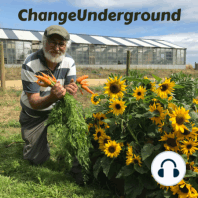7 min listen
51 #worldorganicnews 2017 02 13
ratings:
Length:
7 minutes
Released:
Feb 13, 2017
Format:
Podcast episode
Description
Links WORLD ORGANIC NEWS in the Australian Podcast Awards Click here Addressing smallholder farmers’ needs with green manure cover crops and agroforestry in Zambia http://wp.me/p5Cqpo-eay Improved manure management – getting more from a limited resource | Africa RISING http://wp.me/p5Cqpo-ebT Conservation agriculture – a system to adapt to climate variability and declining soil fertility in Zambia | Africa RISING http://wp.me/p5Cqpo-edg Soil networks become more connected and take up more carbon as nature restoration progresses – Permie Flix http://wp.me/p5Cqpo-eeh *** This is the World Organic News for the week ending 13th of February 2017. Jon Moore reporting! This weeks focus is Small Holders! I saw a graphic on facebook the other day showing the production from industrial farms Versus smallholders. 30% of the world's food production coming from the industrial sector and 70% from smallholders. This is a sector in need of support. Starvation or rather the threat of starvation tends drive systems to stability. If we change something we might well starve next winter. This is quite understandable yet something over which we have no control is changing, The Climate. Watching an edition of Landline on the ABC last month I heard a farmer here in Australia telling the interviewer he was certain the climate was changing. His evidence? Silage making used to start in the first week of November, late Spring. Now He starts in the last week of August, two and a half months earlier. Even Alice Springs, in the dead centre of the Australian Continent is now regularly receiving rain during winter. So when the people on the ground can see the changes we need to take heed. Smallhalodings are more resilient as a rule. They have greater tree cover, deeper soils full or organic matter and are by their nature not monocultural. A variety of crops and livestock are kept. This means some form of production will always occur barring a ten year drought. And these are happening too. The blog Africa RISING brings us three posts: Addressing smallholder farmers’ needs with green manure cover crops and agroforestry in Zambia, Conservation agriculture – a system to adapt to climate variability and declining soil fertility in Zambia & Improved manure management – getting more from a limited resource. The danger for smallholders is the enticement of the petrochemical industry and the call of “The West”. Perhaps fortunately inorganic fertilisers are 3 to 5 times the price they are in Europe. Growing as if these fertilisers had been applied but not doing so depletes the soil and leads inevitably to the collapse of the system. A poverty trap of enormous proportions. Africa RISING provides a solution. An example from Zambia: Quote: In Eastern Province of Zambia, farmers are being offered a range of solutions by Africa RISING that provide a way out of this poverty trap. These technologies, options, and approaches include drought- and stress-tolerant maize germplasm, conservation agriculture (CA), improved rotation and intercropping with grain legumes, agroforestry, and green manure cover crops. End Quote. In effect, apart from the seed selection options, a return to the traditional smallholder’s way of farming. That being said, pretty much the entire globe is now trapped in a money system of some sort. The need for income has also driven many mixed livestock/cropping smallholders to feed off crop residues rather than leave them on the soil surface to protect that precious resource. Quote: The use of CA (CA = Conservation Agriculture) principles (minimum soil disturbance, crop residue retention, and diversification through rotation and intercropping) hinges on the ability of farmers to retain sufficient surface crop residues to protect the soil from erosion, runoff, evaporation, and excessive temperatures. However, farmers in mixed crop-livestock systems face competing demands for these residues because they also feed them to their
Released:
Feb 13, 2017
Format:
Podcast episode
Titles in the series (100)
23 #worldorganicnews 2016 07 04: A new documentary "What's With Wheat?", Industria… by ChangeUnderground
